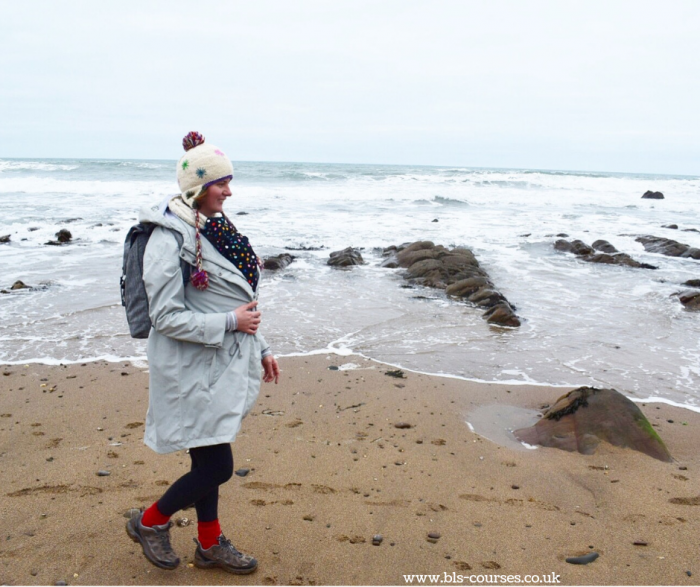With globalisation and the ease of travel, more often than ever people find themselves living abroad and living a multilingual and multicultural life. That is why raising my daughter bilingually was more a natural consequence of my life trajectory than a thought-through process. I read some guidebooks on bilingualism to have a general idea on how to organise our bilingual life, but that was it. It was a natural decision which I thought all parents would follow, but since having met some parents who decided not to raise their children bilingually, I started to think about why we might want to raise our children bilingually and why we decide in favour of or against our children’s bilingualism. We as parents are the main people who are responsible for our children’s bilingualism and it is true that it can be overwhelming to learn, implement and follow the principles of bilingual parenting. Moreover, as immigrants we want to fit into society; through speaking two languages we may stand out on the monolingual landscape. At the same time, a bilingual upbringing can generate many advantages for people, economically, socially and culturally. What to choose and why? Parents’ decisions on bilingualism may be based on their personal beliefs, but they might also be influenced by others, for example, medical or educational professionals.

If you’re a bilingual family or planning to become one, you may want to think and form your own definitions/answers to the below questions (I added a short commentary to each question, please treat it as some form of inspiration to your further research and study of bilingualism):
What is bilingualism?
Because of the complexity of the term, you may want to create your own definition of bilingualism. Your understanding of the notion might be influenced by the fact that bilingualism is created and functions in various environments, family settings and countries/regions and may impact individuals with different talents and skills differently.
Is Bristol a good place to raise bilingual children (if you’re from Bristol)?
I think it’s important to have a better understanding of the local perception of bilingualism. If your children go to nursery/school, ask staff members some questions about bilingualism and see their approach to bilingualism. You can also check if there are extra-curricular language or cultural classes organised by the local council, schools or private people.
What influences parents’ decision-making on family bilingualism?
Here, we can think whether society and medical, educational or governmental authorities can influence our decisions on the bilingual upbringing of our children. Parental choice for or against bilingualism will influence a child’s life in many different aspects, e.g. their identity, cultural bonding or linguistic skills, among others. If parents decide not to form a bilingual family, they may make this decision based on the disadvantages linked with bilingualism, e.g. hard work, not being a ‘normal’ family, worries about language development and potential misunderstandings. (see Barron-Hauwaert) Through choosing monolingualism and full linguistic assimilation, immigrant parents can deprive their children of certain experiences, e.g. a bond with their linguistic, family or cultural heritage.
How do stereotypes around multilingualism influence our decisions on bilingualism?
To be honest with you I didn’t know any stereotypes around multilingualism until I started reading more literature on bilingualism. One of the stereotypes around bilingualism is that bilingualism can be linked with underachievement at school (see Marzán), but the most recent research suggests the opposite, that actually bilingualism “is now associated with a mild degree of intellectual superiority.” (Baker 2014: 54)
What are the advantages of bilingualism?
Bilingualism can be associated with many different benefits, in the form of communication (being able to communicate more effectively with others) and practical and social value (facilitating cultural exchanges and promoting multi-cultural understanding). Colin Baker also mentions cognitive advantages (creativity), character advantages (increased self-esteem), curricular advantages (easier to learn a third language) and economic advantages (employment benefits). (see Baker) We can add the following benefits to the list: more freedom to be mobile, an increased tolerance towards other languages and cultures and an understanding of other foreigners’ needs. (see Barron-Hauwaert)
Can you think of any other benefits of bilingual upbringing of your children? Please let me know in the comment below.
References:
Baker, C. 2014. A Parents’ and Teachers’ Guide to Bilingualism. Bristol: Multilingual Matters
Barron-Hauwaert, S. 2014. Language Strategies for Bilingual Families. The One-Parent-One-Language Approach. Bristol: Multilingual Matters
Marzán, J. 2003. Found in Translation. Reflections of a Bilingual American. In: Sommer D. (ed) Bilingual Games. Some Literary Investigations. New York: Palgrave Macmillan
Kinga Macalla













